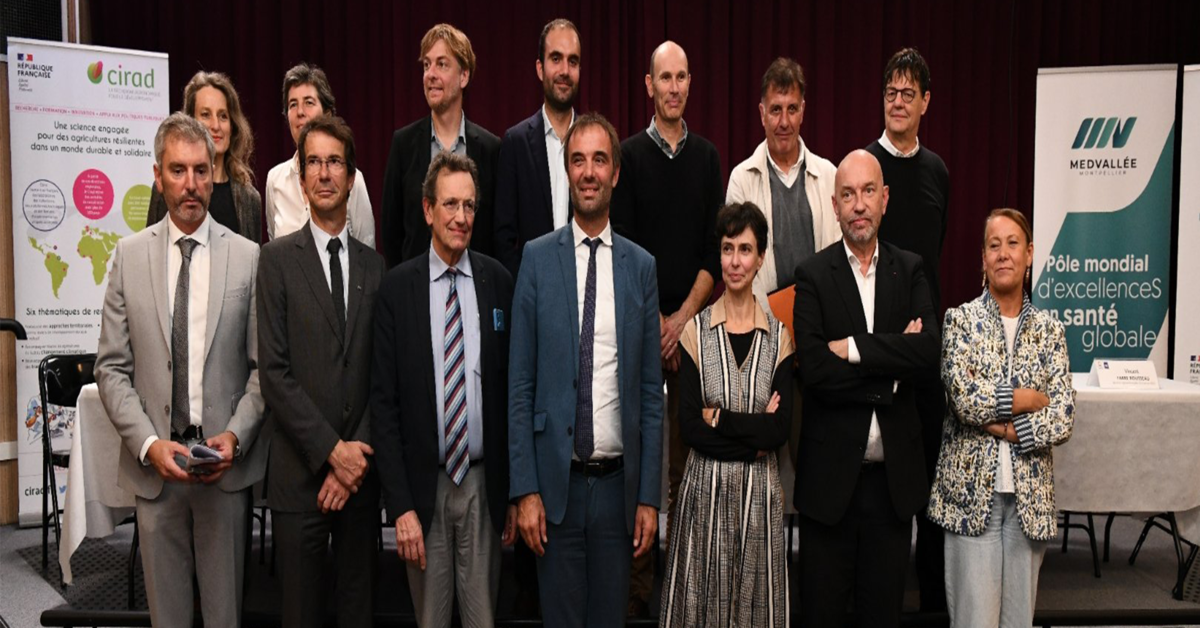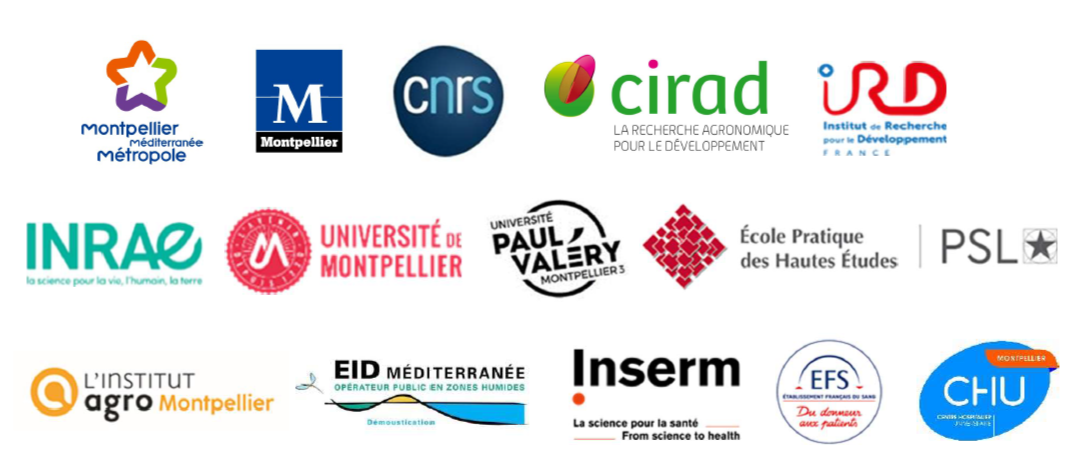
Biodiversity and Health: Signing of an unprecedented partnership agreement between the city, the city of Montpellier and the research institutes in the region
For the World Health Organization, “the environment is the key to better health.” At the local level, anticipating, preventing and preparing for public health emergencies, in the context of climate change and the acceleration of globalization we are currently witnessing, requires strengthening the interface between science and decision-making.
Thus, the partnership agreement is unprecedented “Healthy Environment” 2023-2030 To take into account an integrated approach to health, in particular the “One Health” or global health approach, it was signed on Wednesday, 25 October 2023.
“Since the COVID-19 crisis, there has been no longer a need to implement integrated approaches to health. Montpellier is a city with a scientific tradition.
The MedVallée strategy began two years ago across our living area and consists of bringing together all the players in the field of science, research and innovation at the crossroads of the three sectors of excellence in our territory – Health, Environment and Food – Agronomy and Agriculture – for a better “Feed, Care and Protect” program that aims to raise Montpellier to Ranking as a global center of excellence and participating in building a model urban city in the field of global health.
Our scientific community includes leading specialists in health ecology. Specialists who have operationalized the integrated “One Health” approach in countries of the South. With global warming, the collapse of biodiversity, displacement and the introduction of new species, and new vectors of emerging diseases, our twenty-first century faces many disruptions.
Today it is up to us to collectively confront these human-generated disruptions and develop greater collective intelligence. Today I am pleased that the City and City of Montpellier have launched this new consortium, an unprecedented union to think together about the health environment and better adapt our public policies.
7-year agreement to guide public policies
Intended to last for 7 years – to achieve the goals of the major investment and transformation plan “France 2030” – this framework partnership agreement initiates a union of thinking, action and research around common themes to guide public policies and enrich community-based environmental health policy.
The nine areas of cooperation in this agreement
The 2023-2030 partnership agreement revolves around 9 axes:
- 1. Accelerate the transfer of exosome research to better understand and thus better prevent diseases associated with environmental damage,
- 2. Study the environmental resilience of ecosystems in order to better understand and prevent the impoverishment of environments and the factors that lead to the emergence of infectious and zoonotic diseases,
- 3. Monitor the environment and the development of hosts, reservoirs, vectors and pathogens to assess risks and develop prevention, monitoring and control strategies.
- 4. Assess the links between management, design and development practices in terms of (re)vegetation of cities or the evolution of agro-ecological practices in peri-urban areas and disease vector risks,
- 5. Experiment with new tools and strategies to be part of the logic of sustainable and integrated disease vector and risk management at the regional level,
- 6. Assess, monitor and prevent the health impacts of potentially harmful species, non-native species, invasive alien species and plant pathogenic species in ways compatible with environmental conservation.
- 7. Inventory, promote and share awareness tools with all stakeholders and audiences to improve representation of environmental health and prevent environment-related risks and biodiversity loss,
- 8. Accelerating the contribution of social sciences to environmental health within open science projects and participatory scientific research and in relation to living laboratory initiatives that invite citizens, residents and users to be active in research, innovation and change in practices,
- 9. Propose concrete measures to the city and metropolis of Montpellier to develop legal frameworks for urbanization, citizenship and management of the urban environment.
Concrete example: dengue fever
This viral infection is transmitted by mosquitoes to humans, and is common in tropical and subtropical climates, but the first local case was recorded in France in 2010.
In 2022, 66 “local” cases of dengue transmission were reported in the region, and “local” means that the patient has not previously traveled to the contaminated area. These 66 cases in one year represent more than double the cases recorded in 12 years.
The agreement was signed before Michael Delafosse, Florence Brau, Stephane GaultElisabeth Claverie de Saint-Martin, President and CEO of CIRAD, Vincent Fabre Rousseau, Montpellier – Regional Director of CIRAD in Occitanie, Pierre Le Monde, Deputy Scientific Director of Reference of the National Center for Scientific Research, Florence Moreno, Occitanie Regional Delegate for IRD, Philippe Augé, Rector of the University of Montpellier, Renan Targheta, Director of Research and Innovation of the University Hospital of Montpellier, Sylvain Labé, President of the INRAE Occitanie-Montpellier, Jacques Cavalli, Regional Delegate of the Occitanie-Mediterranean Region of INSERM, Jean-Michel Verdier, President of EPHE -PSL and Christophe Murgo, President of EID Méditerranée.
Agreement Partners:
A signature that is part of the MedVallée strategy.

“Organizer. Social media geek. General communicator. Bacon scholar. Proud pop culture trailblazer.”


